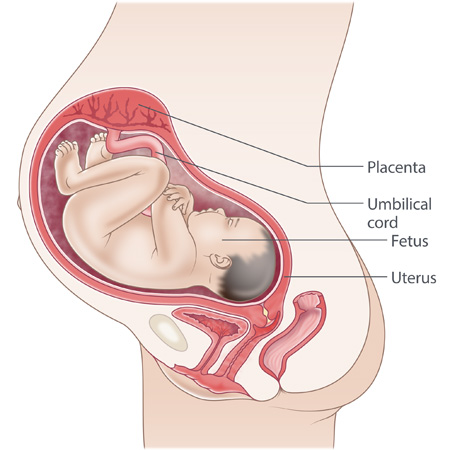You at 33 weeks pregnant
As well as feeling more excited as the birth approaches, you might also have more swelling, aches and pains, heartburn and reflux. You might be feeling more tired and urinating more often.
Rest whenever you can, and ask for or accept help whenever people offer it.

Signs of labour
Here are signs that labour might start soon:
- a show
- more pressure in your pelvis as your baby’s head shifts lower in your uterus and into the pelvis
- cramping in your lower pelvis, a bit like period pain
- more Braxton Hicks contractions
- your waters breaking either in a slow leak or a big gush.
You might be in labour if you:
- feel labour contractions that last for a minute or more
- have contractions that are coming at regular intervals
- have contractions that are getting stronger, longer and more frequent.
If it’s before 37 weeks and you’re experiencing any of these signs or you think labour has started, go to your maternity hospital or call an ambulance straight away. You might be in premature labour. Some premature labours can be stopped or delayed.
From 37 weeks, if you’re experiencing any of these signs or you think labour has started, call the hospital or your midwife or doctor straight away.
Your baby when you’re 33 weeks pregnant
This is what your baby is doing:
- Your baby is about 29 cm from head to bottom and weighs about 1.9 kg.
- Your baby is practising sucking and swallowing. These reflexes won’t be fully coordinated until about the end of 34 weeks pregnant.
- Your baby’s liver is storing iron. These iron stores will help your baby until 4-6 months after birth.
- Your baby’s lungs are maturing, producing a lot of surfactant to help your baby breathe after birth.
- Babies born now have a very good chance of survival, but they’re still premature. They’ll need to be looked after in a neonatal intensive care unit or special care nursery.
If you notice a change in your baby’s movements at any stage, call your midwife, doctor or hospital immediately.